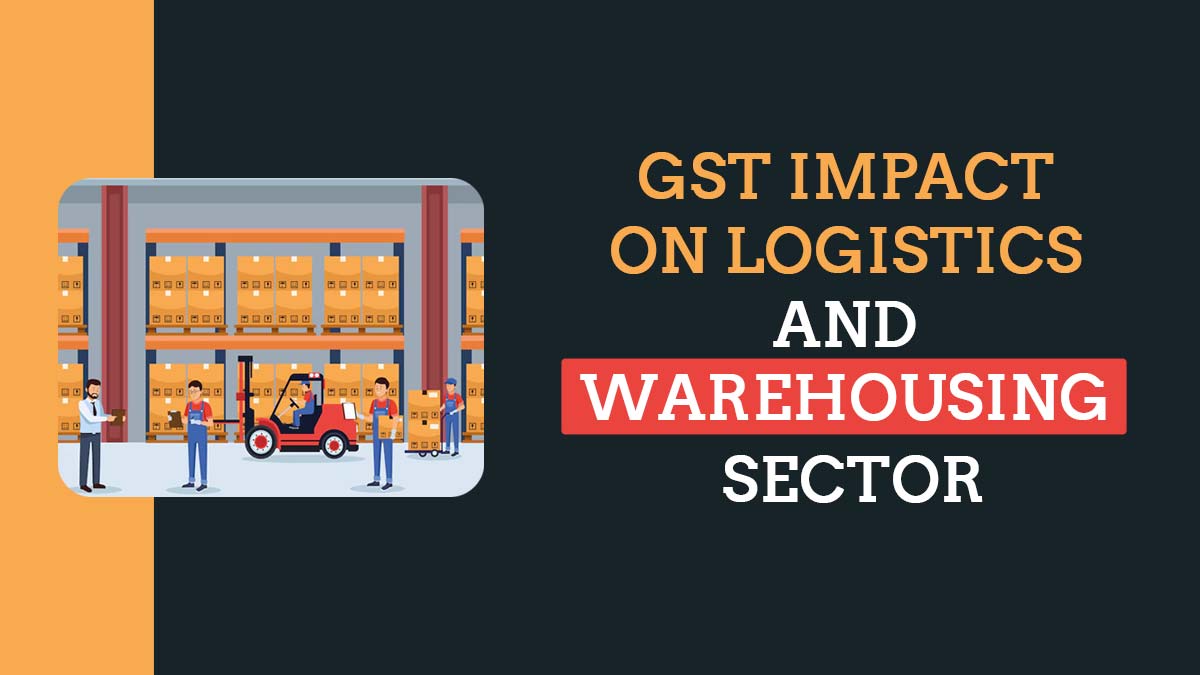The Goods and Services Tax (GST) regime is now ready to give a boost to the growth of the warehousing and logistics industry in India. New warehousing hubs are set to establish better facilities and better transportation and logistics services across the nation.
According to a real estate consultancy firm, JLL India, the implementation of GST has played a key role in the development of e-commerce giants, and they will be able to choose a wide range of services across the country.
It will undoubtedly benefit the logistics corner and offer cost savings on the consumer end. The GST bill has been implemented from 1st July 2017, and the government will facilitate E-filing of GST through online portals for filing procedures.
With the advent of the goods and services tax, it is also a support of the e-commerce industry to further make the industry more worthwhile. As the scenario has changed a lot, online shopping demands a firm supply chain to cater for the needs of the general public.
Although the free samples were considered without any levy while it is also not considered for the goods and services tax. But the consequence is that the input tax credit is barred from being avail. The customer can send free samples to their prospective buyers, but all the packaging and freight are subject to the GST applicability.
While transporting and warehousing are not as much in the highlight when talking about the business at large, it is certainly the most important aspect of it. As the GST was implemented on 1st July 2017, it is speculated that the warehousing industry is all set to jump a great length in no time.
Anuj Puri, Chairman and Country Head, JLL India, stated that “Under the new tax structure, the focus would shift from saving tax by having smaller warehouses, to improving overall efficiency. The merger of smaller warehouses will lead to higher efficiency in supply chains, and the former would become more productive and logical locations. Automation of these assets will be seen, which will give excellent cost benefits to the landlords/ operators. As the rents charged by organised warehouses will go down, the price advantage that unorganised warehouses presently enjoy will shrink.”
Recommended: What is Mixed and Composite Supply Under GST?
In the recent study done, the World Bank India has successfully jumped 19 positions in the Logistics Performance Index (LPI) just after the implementation of the Goods and Services Tax. Now, the country stands at 35th rank, while it stood at the 54th position back in 2014.
A lower investment opportunity in the warehousing sector also offers a better investment return and leads to the growth of the business. The warehouse industry in India is worth INR 560 billion and is growing at a rate of 10 percent every year.
Many of the ambitious individuals are eying a better opportunity and growth in the logistics and warehousing sector. The logistics and warehousing are also capable of boosting the economy and will increase the share of GDP, which is currently about 13 per cent.
The growth in the Indian warehouse industry is driven by domestic consumption, an increase in international trade, increase in private and foreign investments in infrastructure.
Apart from storage facilities, the warehousing firms in India now offer an array of value-added services such as packaging, cargo, reverse logistics, bar coding, etc., in order to provide the best services to the consumers. The different warehousing segment that plays different roles in the industry are classified as follows:
Industry/Retail Warehousing– MJ Logistics, DHL, Safexpress, Allcargo, etc
Liquid Storage– Indian Oil Tanking, IMC Ltd, Vopak India, Sealord, etc
Agri Warehousing– National Bulk Handling Corporation Ltd., Ruchi Infrastructure Ltd, Adani Agri Logistics, etc
Cold Stores– Snowman, Cold Star, ColdEx, Fresh and Healthy Enterprise, etc
With GST into consideration, the new taxation system will make India a single market with the destination-based tax system. It will have a strong impact on the manufacturing chain, supply chain, and retail chain. The logistics and warehousing were already on the fast track, but the upcoming of GST took longer than speculated.
This time, the warehousing and logistics will be capturing a model with a larger hub in the centre with a spoke chain across the nation. A strategically placed warehouse not only improves the consumer services but also facilitates proper supply chain management.
The objective of GST is to make the supply chain leaner and flexible, while the major impact will be seen in the warehouse industry. As stated by KPMG India Pvt. Ltd., because of the current complicated tax structure, the logistics decision and choice of setting up inventory and distribution.
Also Read: GST Impact on Automobile Industry in India
As stated by KPMG India Pvt. Ltd., because of the current complicated tax structure, the logistics decision and choice of setting up of inventory and distribution centres are taken on the basis of applicable CST and VAT rates, rather than operational efficiency.
With GST implemented, there will no longer be the necessity of having a warehouse in every state where a firm does business. The same decisions will be free from a tax consideration perspective and will be purely based on operational and logistics efficiency. The organisations may now design their supply chain management in an efficient way with cross-docking and bulk breaking practices.
Nagpur is now considered a hub for the warehousing business, which is tagged as the Zero-mile city of India. While the tax on warehousing and other labour-oriented services is now decided at 18 percent, from previously stated 15 percent.
This increase has given the benefit to the third-party logistics service providers who can now shift towards the service provisions. This will also provide input tax credit to be claimed by the service providers.
V. Ramaswamy, chief executive officer of Cargowings logistics, mentioned some of the important points for the GST impact on the logistics industry: “GST will bring a lot of alignment of value-added services in the logistics sector. This will make way for cutting-edge investments and mergers, and one will see a phenomenal increase in asset utilisation and increase operational efficiency. There will be new investment opportunities for technology-enabled mini warehouses along the highways, and the sector will witness a fresh wave of technology-enabled start-ups.”
There is an overall benefit for the logistics industry after the GST, but there are so many problems that may get stuck in the course. Still, it has many more capabilities to reduce the transportation cost by 20 percent. This may further give access to far-reaching technologies and global footprints.










Warehousing industry is likely to benefit more compared to other industries but, it will require some time. Thanks for sharing the above information.
I have a logistics business. I provide logistics services to my clients. Since providing logistics services comes under RCM, I have not charged any GST to my clients. But in GSTR3B, under which column I have to declare my Services Received amount. Please help.
As GTA is not eligible for ITC on input services, so you not need to show any purchases under GSTR-3B.
What would be ideal no np lmao places for white goods company in pan India scenario
What is the GST rate on rent paid to warehouse owner for Warehousing of Agri Produce like MAize, Paddy, Wheat, etc?
Nice Information, thanks for sharing such important information that helps to know how GST will impact on Logistics and Warehousing.
GST is a game changer, not just for logistics, but every other industry. Industries that majorly depends on logistics, be it e-commerce, real estate and any other, could make margins with a good logistics partner in place. read this to know more about how GST influences these industries and how a logistics partner could help them in making margins.
1-What is impact of GST on warehousing & Transportation
2-How we can Exploit It
Excellent post…very useful and to the point
My question is, at present on import of fresh fruits (for trading in local) CVD is NIL After GST implementation CVD will be NIL?
Currently there is no as such exemption or abatement rules declared by the government.
Thanks for your valuable information.